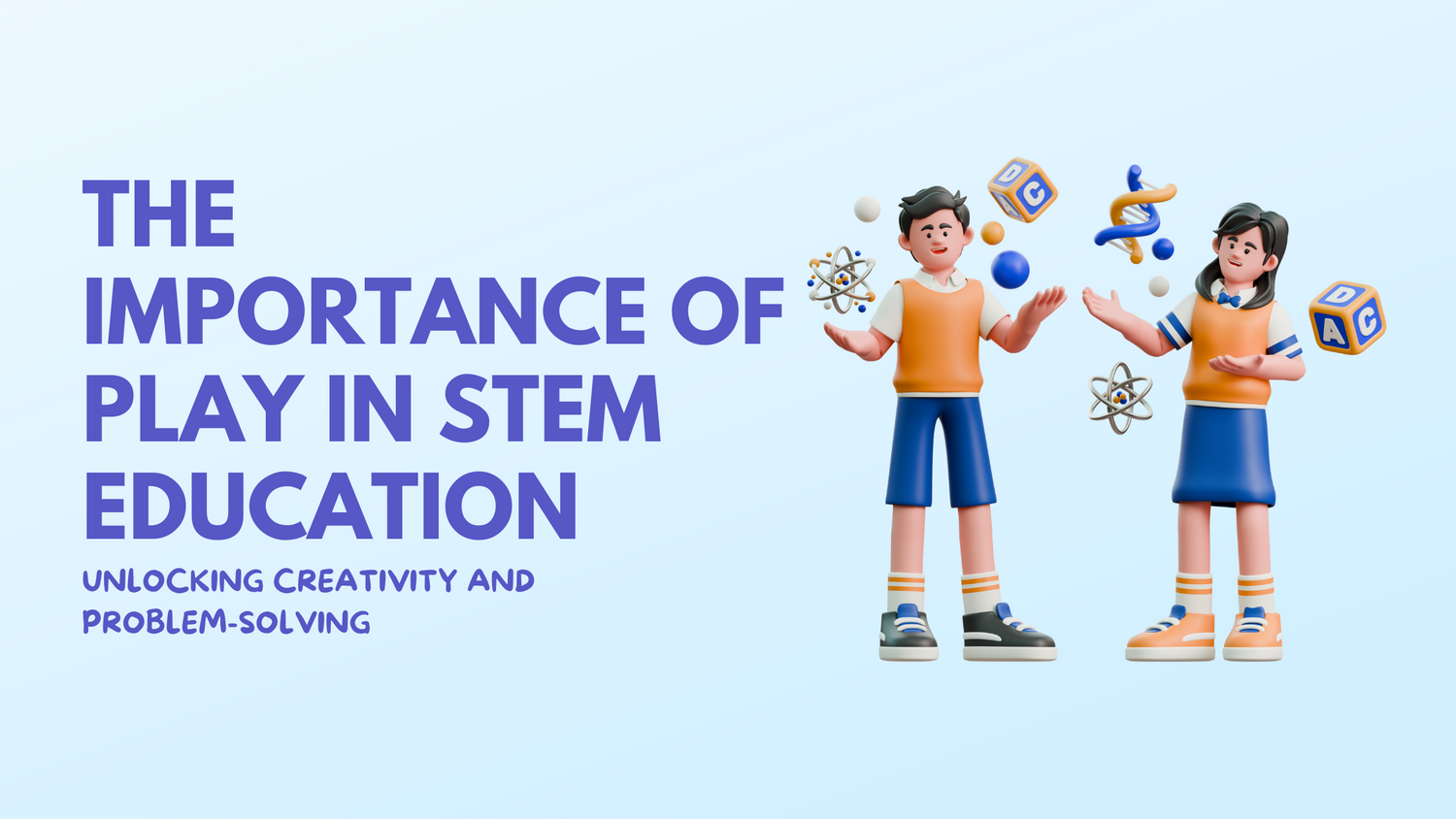The Importance of Play in STEM Education: Unlocking Creativity and Problem-Solving


In today’s rapidly evolving world, STEM education (Science, Technology, Engineering, and Mathematics) plays a vital role in shaping future innovators, thinkers, and problem-solvers. But what makes STEM education so impactful, and how can we ensure that children are truly engaged in these critical subjects? The answer lies in one simple but powerful tool: play.
Why Play Matters in STEM Education
Play is not just for fun—it’s a powerful learning tool that fosters creativity, curiosity, and cognitive development. For young children, hands-on play with STEM toys, experiments, and games encourages exploration, trial and error, and critical thinking—all essential components of STEM learning.
Here’s why play-based learning is essential to STEM education:
1. Hands-On Learning Promotes Engagement
When kids actively participate in experiments and activities, such as building a marshmallow tower or watching a Baking Soda Volcano erupt, they aren’t just learning concepts—they’re experiencing them. This hands-on approach makes abstract STEM concepts feel real and applicable, creating excitement around learning.
2. Fosters Problem-Solving Skills
Through play, children are presented with challenges and puzzles to solve. Whether it’s building a sturdy structure with marshmallows or figuring out how to make a Bobbee float, these playful challenges teach kids how to think critically and logically. They learn that failure isn’t something to fear but an opportunity to try new approaches and solve problems.
3. Encourages Creativity and Innovation
STEM is all about innovation, and creativity is the key to creating new solutions. When kids play with STEM toys and kits, they are encouraged to think outside the box and approach problems from different angles. The open-ended nature of play allows children to experiment, invent, and discover new possibilities.
4. Builds Social and Emotional Skills
STEM play isn’t just about individual growth; it also provides valuable opportunities for collaboration. Working together to complete an experiment, build a project, or solve a puzzle helps children develop communication and teamwork skills. As they navigate through challenges, they also learn important emotional skills like patience, resilience, and adaptability.
5. Prepares for Future Success
As we continue to rely on technology, innovation, and problem-solving, the skills developed through play-based STEM education become essential. Kids who engage in STEM play today are not only prepared for future academic success but also for careers in technology, engineering, science, and math—fields that will shape tomorrow’s world.
Griddly Kids: Where Play Meets STEM Learning
At Griddly Kids, we’re passionate about creating products that make STEM learning fun, engaging, and accessible. Our STEM kits, like Just Add Baking Soda and Bobbee, allow kids to explore the exciting world of science, engineering, and technology through play. These products foster critical thinking, creativity, and problem-solving skills while providing endless hours of fun.
By introducing STEM learning through play, we’re helping shape the innovators, creators, and problem-solvers of tomorrow. Our products allow kids to not just understand but experience science in action, igniting their curiosity and building their love for learning.






